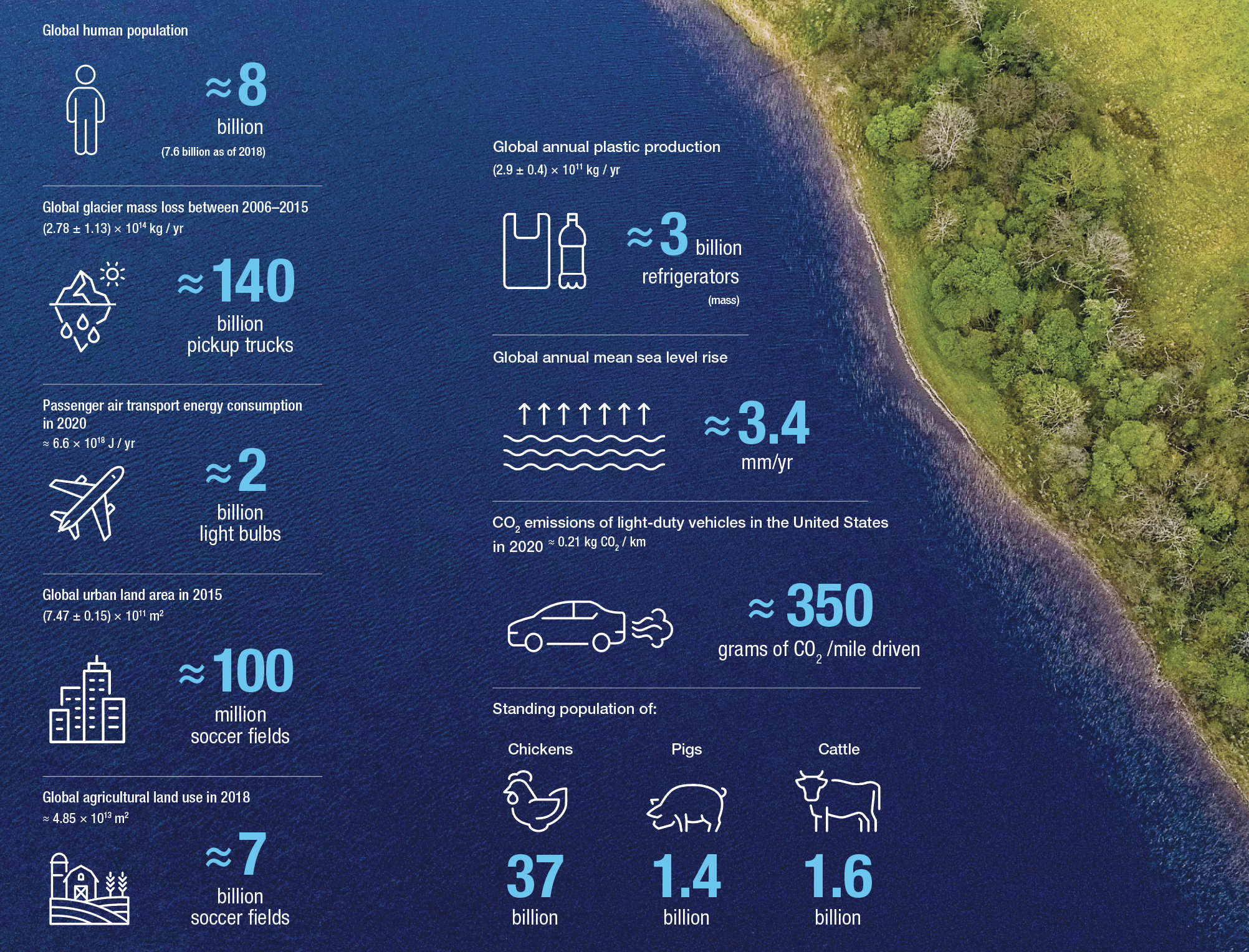Truth in Numbers: The Database That Quantifies Our Relationship With Planet Earth
Background image: Cornell University
by Lorinda Dajose
When you buy a cheap hamburger, you may not realize how many ways your meal illustrates a grand narrative about how humans have shaped the planet. Consider the land used to raise beef cattle, the water required to raise those cattle, the fuel used to transport the beef all over the world, and the human progress that enables us to easily buy a burger—and, for that matter, hop on a plane, charge our phones, and take part in the multitude of activities that make up our everyday experiences.
Caltech researchers in the laboratory of Rob Phillips, the Fred and Nancy Morris Professor of Biophysics, Biology, and Physics, have developed a statistical repository to quantify how humans have impacted the planet. The Human Impacts Database is designed to be accessible to scientists, policymakers, and everyday citizens. It provides information such as global plastic production (4 x 1011 kilograms per year), the number of cattle on Earth (about 1.6 billion), and global annual mean sea level rise (approximately 3.4 millimeters per year). The data are broken into five main categories: water, energy, flora and fauna, atmospheric and biogeochemical cycles, and land. Where available, the database explains how these numbers have changed through the years.
Former graduate students Griffin Chure (PhD ’20) and Rachel Banks (PhD ’22) led the project. A paper describing the research appeared in the journal Patterns on August 3, 2022. The team hopes that access to simple numbers about human impacts will help people make more informed decisions. “For example, a friend texted me asking how to compare the impact of dairy cattle versus beef cattle,” Chure says. “We can use our database to figure out that, in terms of land requirement, greenhouse gas emissions, and water use, beef cattle are more impactful by a factor of five or more on a per-calorie basis.”
The project takes a planet-wide approach rather than sorting by country or region. “We also draw data from all sorts of different resources: scientific papers, governmental and intergovernmental reports, and industry reports in some cases,” Banks says. The team plans to update the numbers as new data comes out.
The project was funded in part by the Resnick Sustainability Institute at Caltech.

